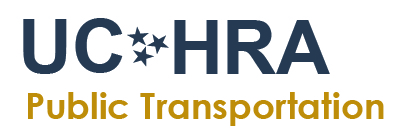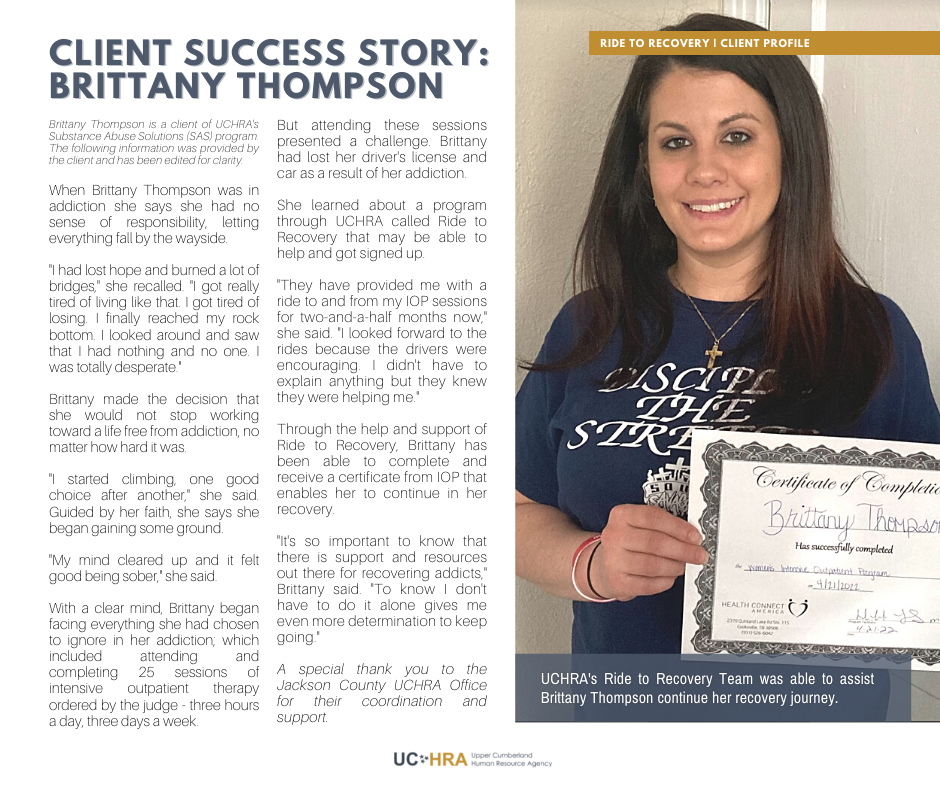
Ride to Recovery
UCHRA Public Transportation’s Ride to Recovery aims to help those who are in early recovery succeed by providing free transportation to desired recovery support services; treatment, meetings, mental health or probation appointments, and other recovery-related activities.
Rural communities face greater transportation barriers than urban communities, including fewer public transportation options, which can make finding transportation services a difficult process. Due to shortages of behavioral health providers and facilities in rural areas, patients often travel great distances, often to neighboring counties, to access services. A Yale School of Medicine study found that individuals residing in rural counties experience longer transportation time to opioid treatment programs than residents in urban counties.
Travel time to substance use disorder (SUD) treatment may have serious implications for treatment and recovery. Research shows that shorter travel distances are associated with longer stays in treatment programs and greater completion rates. Additionally, people who need to seek care may not have a driver’s license or may not be able to transport themselves to treatment. Transportation services may help support rural SUD treatment programs. Ride to Recovery aims to help those who are in early recovery succeed by providing free transportation to the desired recovery support services. Free transportation to treatment, recovery groups, mental health or probation appointments, and other recovery-related activities.
The goal of Ride to Recovery is to offer vehicles that are staffed by those who have their own lived experience in recovery offering hope and encouragement to the riders of Ride to Recovery.
Ridership Guidelines
Referrals
- Individual riders must be referred to Ride to Recovery by a local recovery group/program, treatment facility, mental health provider, or probation officer.
- When appropriate a UCHRA Service Coordination Form is to be filled out by the rider or acting agent.
- The Ride to Recovery program manager will work closely with the referring agent and rider to coordinate needed transportation services.
- Rider partnerships are forged with recovery programs/groups that have a need to get their residents/attenders to outside or in house recovery activities such as recovery support groups
Individual Participation
- There must be at least three (3) riders to offer transportation from partnering recovery programs to outside meetings.
- The program manager will perform a follow-up with the rider and/or referring agent to conduct a transportation assessment and help the rider formulate an Individualized Transportation Plan which will be provided to the rider.
- After three (3) failed contact attempts, the program manager will notify the referring agent of being unable to contact the rider.


